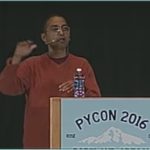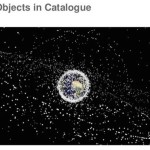“Newton’s explanation of planetary orbits is one of the greatest achievements of science. We will follow Feynman’s approach to show how the motion of the planets around the sun can be calculated using computers and without using Newton’s advanced mathematics. This talk will convince you that doing physics with Python is way more fun than the way you did physics in high school or university.”
Video: Lorena Barba Keynote at PYCON 2016
In this video from PYCON 2016 in Portland, Lorena Barba from George Washinton University presents: Beyond Learning to Program, Education, Open Source Culture, Structured Collaboration, and Language. “PyCon is the largest annual gathering for the community using and developing the open-source Python programming language.”
Video: High-Throughput Processing of Space Debris Data
“Space Debris are defunct objects in space, including old space vehicles (such as satellites or rocket stages) or fragments from collisions. Space debris can cause great damage to functional space ships and satellites. Thus detection of space debris and prediction of their orbital paths are essential for today’s operation of space missions. The talk shows the Python-based infrastructures BACARDI for gathering and storing space debris data from sensors and Skynet for high-throughput data processing and orbital collision detection.”
Video: Faster Data Processing in Python
In this video from PyCon SG 2015, Anand S. presents: Faster Data Processing in Python. This talk covers methods to process and analyze visualize data faster in Python. The primary focus is on the technique (should you optimize? what to optimize? how to optimize?) while covering libraries that help with this (line_profiler, Pandas, Numba, etc.)







